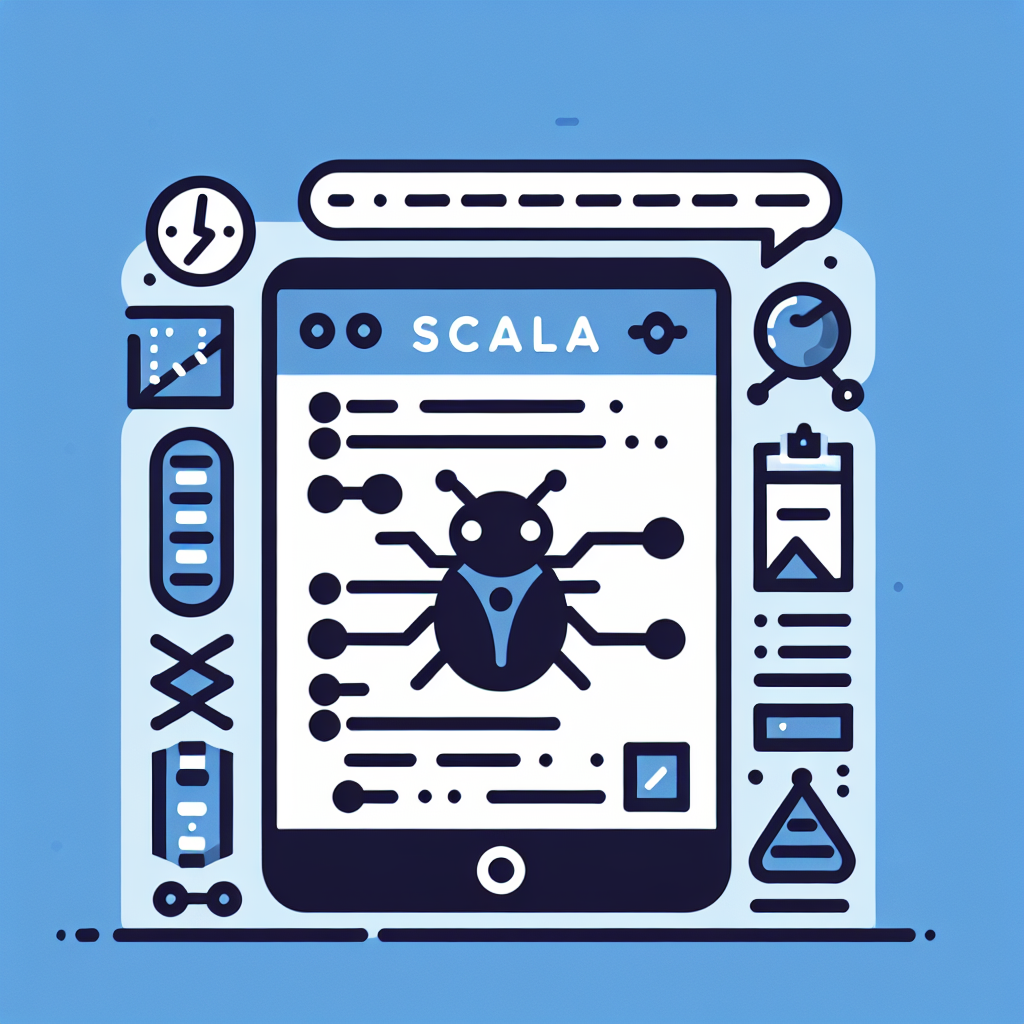Effortless Scala Code Debugger: Boost Your Productivity
Unlock seamless debugging with our Scala Code Debugger. Streamline error detection, enhance productivity, and boost code efficiency effortlessly. Try it now!
Code to Debug
Debug Results
Output will appear here...
The Scala Code Debugger is an advanced tool designed for developers to efficiently identify and resolve code issues in Scala applications. Offering real-time debugging, breakpoint management, and variable inspection, it enhances productivity and code reliability. Ideal for both beginners and experienced developers, this debugger seamlessly integrates with popular IDEs, streamlining the error detection process and improving overall software performance.

Scala Code Debugger: Enhance Your Coding Efficiency Link to this section #
The Scala Code Debugger is an essential tool for developers looking to streamline their debugging process in Scala applications. With a focus on precision and efficiency, this tool simplifies code diagnostics and performance optimization.
Key Features Link to this section #
Breakpoint Management: Set, view, and manage breakpoints effortlessly. This feature allows you to pause execution at critical points to inspect variables and control flow.
Variable Inspection: View and modify variable values in real-time. This capability is crucial for understanding the state of your application at any given moment.
Call Stack Navigation: Easily navigate through the call stack to track the sequence of method calls. This helps identify where errors are occurring and why.
Conditional Breakpoints: Use conditions to trigger breakpoints only when specific criteria are met, reducing unnecessary interruptions.
Code Snippet Example Link to this section #
object DebugExample {
def main(args: Array[String]): Unit = {
val numbers = List(1, 2, 3, 4, 5)
val result = processNumbers(numbers)
println(result)
}
def processNumbers(nums: List[Int]): Int = {
nums.map(_ * 2).sum // Set a breakpoint here
}
}
Integration and Compatibility Link to this section #
IDE Integration: Seamlessly integrate with popular IDEs like IntelliJ IDEA and Eclipse. This ensures a smooth workflow without switching environments.
Cross-Platform Support: Available on multiple platforms, including Windows, macOS, and Linux, ensuring accessibility for all developers.
Related Tools and Resources Link to this section #
- Scala REPL: For interactive code experimentation and testing.
- IntelliJ IDEA Debugger: Enhances debugging capabilities within your development environment.
By leveraging the Scala Code Debugger, developers can significantly improve their code quality and reduce debugging time, ultimately leading to faster and more efficient software development.
Frequently Asked Questions
What tools can I use to debug Scala code?
Some popular tools for debugging Scala code include IntelliJ IDEA with the Scala plugin, Eclipse with the Scala IDE, and standalone debuggers like sbt and JDB. IntelliJ IDEA is particularly favored for its powerful debugging features and seamless integration with Scala projects.
How do I set breakpoints in Scala code using IntelliJ IDEA?
To set breakpoints in Scala code using IntelliJ IDEA, open your Scala file in the IDE, and click in the left gutter area next to the line where you want to pause execution. A red dot will appear, indicating a breakpoint has been set. You can manage and remove breakpoints through the 'Run' menu under 'View Breakpoints'.
Can I use the Scala debugger with sbt?
Yes, you can use the Scala debugger with sbt by running your application in debug mode. Use the command 'sbt -jvm-debug 5005 run' to start the application with debugging enabled on port 5005. You can then attach a debugger from an IDE like IntelliJ IDEA to this port to begin debugging.